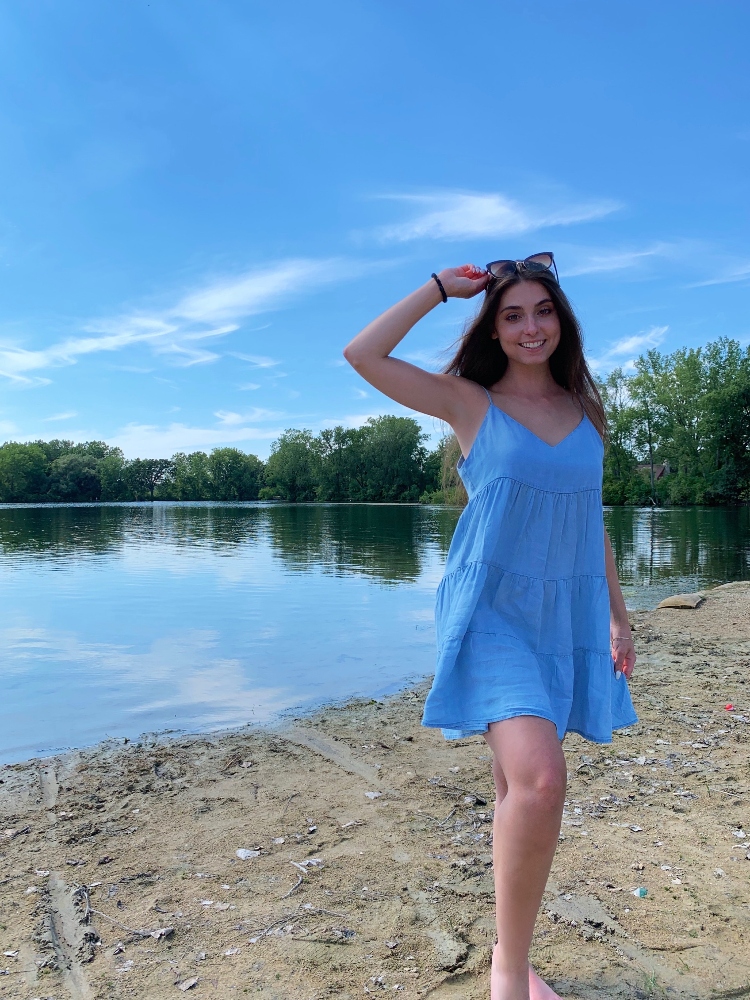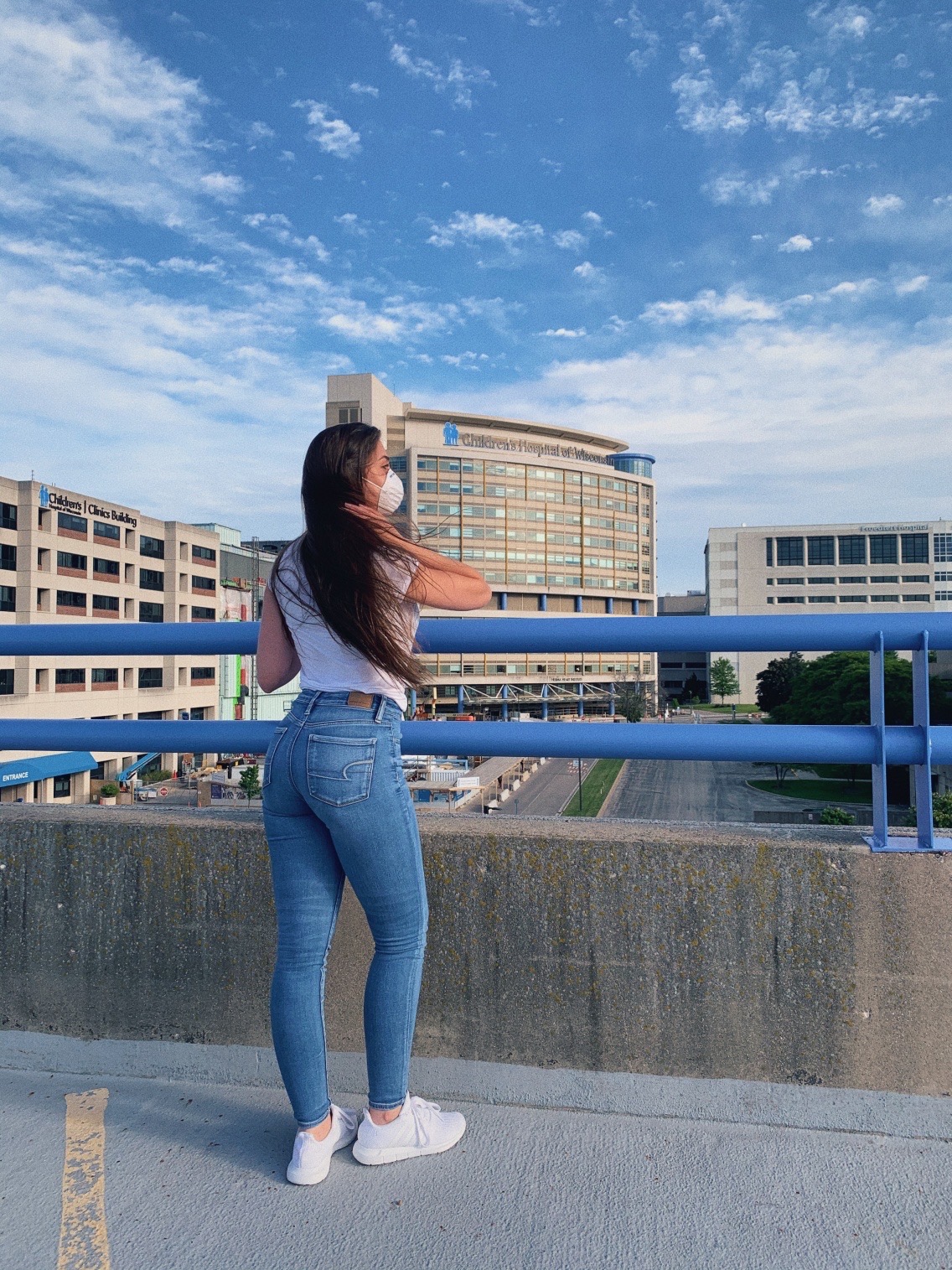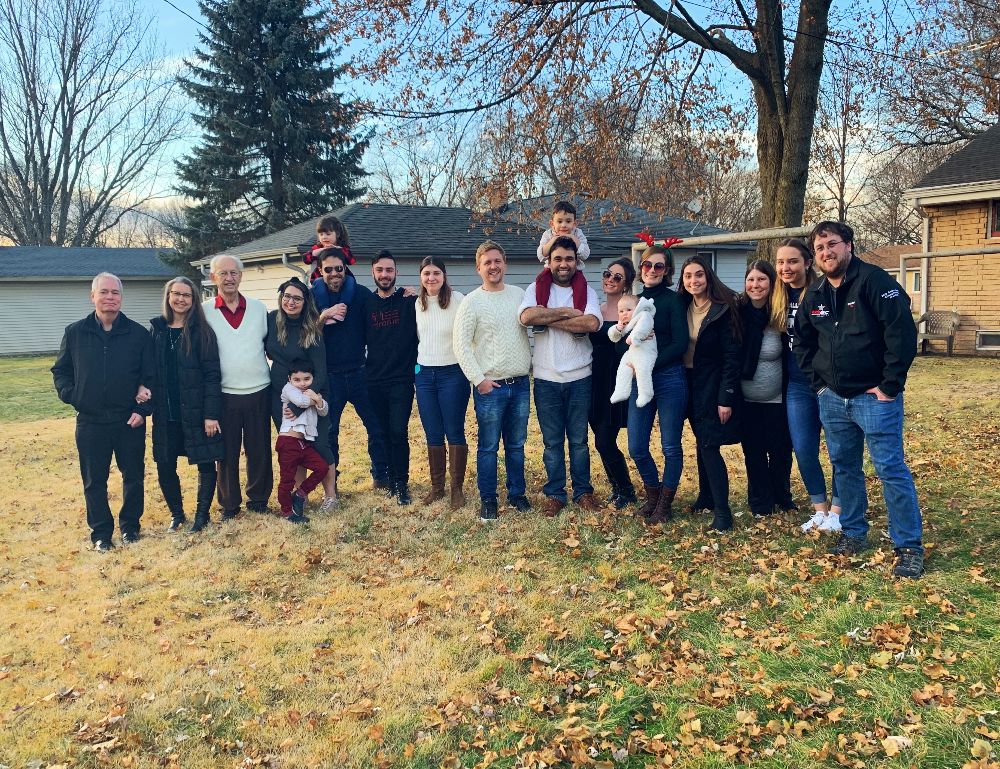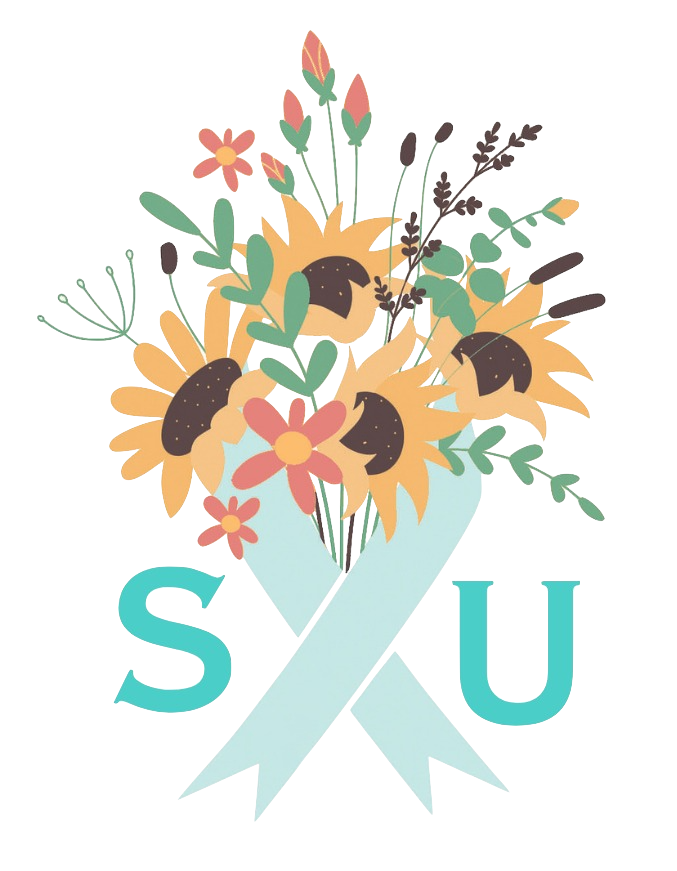Hannah Sportiello
Lake Geneva, Wisconsin (United States)
HANNAH SPORTIELLO
Scleroderma Stories Issue 2

Please introduce yourself
I just graduated high school, and I am going to be a freshman at the University of Wisconsin, Milwaukee this year. I’m majoring in acting and sonography. I have a huge family – seven siblings, four of which are married, and six nephews and nieces altogether.
I dedicate most of my time to theater, and I’ve done about 20 productions so far. Other hobbies are playing with my family and hanging out with my friends, but I’m definitely big on productivity, so I like working hard, studying and going through my scripts.
When were you diagnosed with scleroderma?
I was diagnosed when I was seven, which is much younger than the average person. My mother is an OBGYN and a very good doctor; I was so blessed that she noticed all these signs.
She started to notice that I was complaining about the blue hands. She also noticed puffy skin, especially near my hands, which she noted to be strange considering I was seven. At this point, I was still able to function like the rest of the kids; I was still playing quite normally with my siblings and friends.
We had this family friend, who was a doctor, who came over for dinner one night, and he mentioned that, while it was quite rare, I should get tested for the SCL70 antibody; sure enough, the test came back positive.
I then went to South Carolina to see a scleroderma specialist, Dr. Richard Silver, and he was in charge of diagnosing me. If it wasn’t for my mother, I probably wouldn’t be diagnosed to this day and wouldn’t be getting treated until about 25, when most people get diagnosed.
When I first got diagnosed, my parents say that they explained to me, not that I remember, what I have and the possible outcomes. The doctors gave me a year left to live, but I’m not sure that I knew that part exactly. Honestly, what I remember most is being very spoiled that year. I remember my siblings were treating me very well and I had a lot of fun with them. I’d get ice-cream all the time because my family thought I was dying.
How did scleroderma affect you growing up?
As a little kid, my hands would be cold, and that wouldn’t be a big deal, but other kids would poke fun at it. I remember, and this is pretty sad, having to stay inside during recess in the winter and watch all the other kids play outside through the window, just wanting to go out in the snow. Some of my teachers made it fun, and they let me keep a friend inside. At that point, I started to realize that I was different and this is something that’s not going to go away.
It was difficult trying to explain to my teachers that I have a very serious medical condition unlike the “fakers,” the really dramatic students who have all these medical needs. I also had, on the other side, absolute babying, where my teachers would bring it up in front of the whole class and make sure that all these kids know that I’m not allowed to go outside with them.
Many of my classmates and peers treat it like a fake disease. Like if I try to bring it up in conversation in biology class, not in an attention- seeking way, I get many looks. People think I’m faking it and talking about it to get attention. Since scleroderma is an invisible disease, it never gets the same reactions as those for more obvious conditions.
It also affected me and the extracurriculars that I got involved with. I thought I was never able to do track or play soccer or volleyball. I did that for a bit, and I wanted to do it again in high school, but I worried that I wasn’t athletic enough, that I have scleroderma and that I won’t be able to keep up. I definitely feel like I missed out on that, and now, as a runner, I realized that I could have done that. If I had tried, I would have been able to, but I got in my head; I wish I had seen what I see now.
Additionally, all of my biggest physical insecurities are from scleroderma. I grew up with veins around my eyes, and I wanted to rip them out of my face. They drove me crazy, but not so much anymore since I’ve become a lot more confident about these things.
Having transparent skin, which made me look sick all the time, really got to me growing up. People pointing out that my skin is different, and different in an uglier way, is always difficult for a girl growing up. I’d see these girls with flawless tan skin and there I was, white and blue. Now though, I’m a lot more confident about it and it came with a change in physical and mental mindset.

How does scleroderma affect your life today?
I began treatment so much earlier than everyone else, and because of that, I’m a lot healthier than the average scleroderma patient.
That said, while I look and appear to be very healthy, I do have some drawbacks. For example, all the dance rehearsals are a lot more exhausting for me than for everyone else. I have a lot more pain and other symptoms that go with it, including a vascular disease that I was just diagnosed with this summer. It’s called Venous Insufficiency. It’s not technically related to scleroderma, but because the scleroderma affects my vascular system, the symptoms overlap and become more painful and less manageable without intervention.
The symptoms that I do experience are mainly the Raynaud’s. I take very good care of my skin, so it’s very healthy, but I do notice tightness when other people might not see it. I never was able to keep up as well in dance rehearsals or gym class back in the day, but again, I wasn’t even the worst in the room, so that’s saying something.
It was just little things like that that no one would pick up on if they weren’t aware of my diagnosis.
Every day in rehearsal, I’d have these lead roles where I had to tap dance and do all of that, and I was unable to keep up. I had these huge, ten minute long dance solos to learn, and I’d have to sit out half of it because my feet would swell up so much that I couldn’t even get my shoes on, let alone walk and dance.

What’s the scariest part about living with scleroderma?
I think there are two parts to that.
I would say not knowing what’s going to happen. We thought we knew exactly what was going to happen, in a way. Everyone else had a year left to live; therefore, I was diagnosed and had a year left to live. That said, everyone else was 25 to middle age, and they didn’t receive the treatment that I have been receiving from such a young age. So, when I get to the age they are, we don’t know if I will be better because of the treatment that I’ve been having for the last 20 years or if I will still be at the same point they are at.
It is scary now knowing your future or how it’ll affect you, your family, and your career.
The other part is not knowing if I can have a family or not. I was always told that I can’t have children with the medications I’m on, which means I’ll either have to go off my medications and have children or never go off my medications and choose not to have children, if I even get to that point, if I’m still alive by then.
If I go off the medications, I don’t know if my scleroderma will be okay and if I’ll be able to go that long without a flare-up, which is unlikely.

What advice would you give people with scleroderma or other chronic illnesses?
I think the biggest piece of advice that I have is that you have to change your mindset to cooperate with your chronic illness because you might want it to go away, but it’s not going to, no matter how hard you try.
You have to grow with it because you can’t grow without it. You can’t grow ignoring it since it is a part of you now. You can still change and become who you want to be with it.
Be sure to follow us on Instagram and Facebook (@sclerounited) to see more scleroderma warriors’ journeys in our weekly Sclero Sunday series.
Are you a scleroderma warrior? We’d love to interview you for Scleroderma Stories! Please visit tinyurl.com/share-my-sclero-story or email us at contact@sclerounited.us

